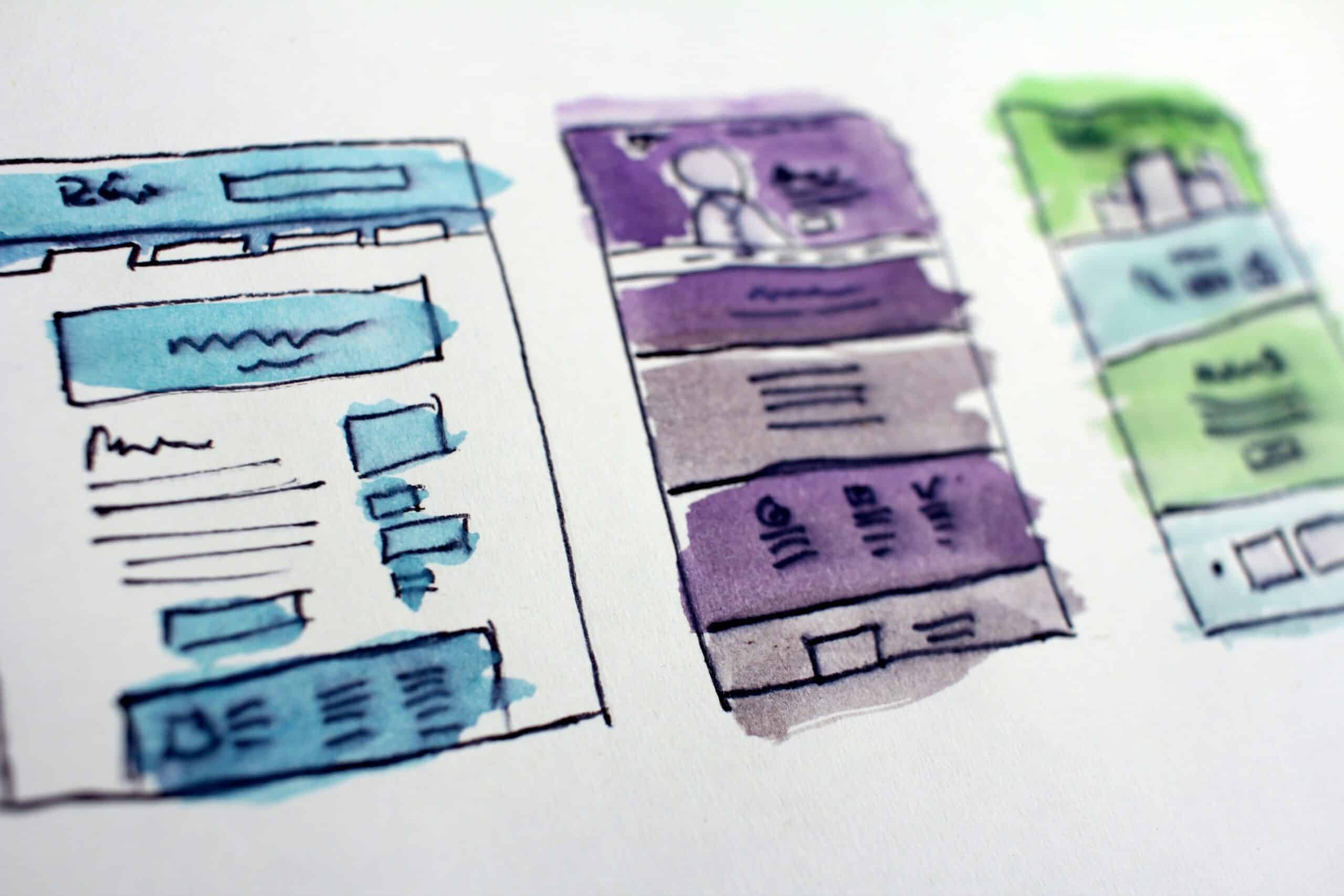Navigating Facebook advertising can be overwhelming, but a good course can help turn the tide in your favor. You’ll learn to craft effective strategies, tailor campaigns, and gain actionable insights from real-world scenarios.
Keep reading to discover how to extract the most value from your Facebook advertising course and elevate your marketing skills.
Key Takeaways
- Establishing Clear Objectives and Targeted Skills Enhances the Effectiveness of a Facebook Advertising Course
- Practical Application Through Dummy Projects and Mock Campaigns Solidifies Theoretical Knowledge
- Continuous Learning and Staying Updated on Trends Is Crucial for Mastering Facebook Advertising
- Engaging With a Community and Seeking Feedback Accelerates Learning and Improves Advertising Strategies
- Reflecting on Mistakes and Setting Milestones Are Essential for Tracking Progress and Applying New Skills
Setting Clear Objectives for Your Facebook Advertising Course

When starting a Facebook advertising course, students should first define their marketing goals and the specific advertising skills they want to develop. Understanding the diversity of Facebook ads will help them focus on the most relevant formats.
Above all, setting manageable and realistic goals can ensure that learners emerge from the course with the confidence and capabilities to steer their Facebook advertising with skill and precision.
Identify Your Marketing Goals Before Enrollment
Before taking a Facebook advertising course, refining one’s marketing vision is a crucial first step. Students should detect their desired outcomes, like improving ad relevance or increasing online sales, and match them with the course content to ensure they invest their time and money wisely. They need to ensure that their goals align with what the course offers, laying the groundwork for a truly beneficial learning experience.
Highlight Specific Skills You Want to Acquire
Participants in a Facebook advertising course should aspire to sharpen specific competencies that will amplify their marketing prowess, such as mastering the use of Facebook Ads Manager or becoming adept at creating high-converting ad visuals. This targeted approach not only streamlines their learning journey but also equips them with concrete skills that can be directly applied to boosting their marketing campaigns, ultimately maximizing return on ad spend and fostering a stronger connection with their target audience.
Recognize the Type of Ads You Wish to Master
As part of a Facebook advertising course, learners must delve into the varieties of ads available to them, whether it’s the simplicity of a boosted post, the specificity of targeted campaigns, or the refined techniques required for video ads. Selecting which type to specialize in should mirror their ultimate marketing goals and the preferences of their target audience, ensuring that each ad holds the potential for the greatest impact.
- Breaking down boosted posts and their utility for quick visibility.
- Exploring the advanced capabilities of targeted campaigns.
- Understanding the creative demands and engagement of video ads.
Set Manageable and Realistic Expectations
When embarking on a Facebook advertising course, aligning expectations with the practicalities of marketing campaigns is key. Learners need to remember that while the course can impart valuable knowledge and tools, actual results will vary based on multiple factors, like the ever-shifting algorithms, the nature of their product or service, and the dynamics of their target audience. Establishing what’s attainable within their budget and existing resources will help prevent disillusionment and motivate learners to apply what they’ve learned.
- Consider the influences of algorithm changes on ad performance.
- Assess how product or service offerings can affect campaign success.
- Factor in the unique behaviors and needs of the intended audience.
- Plan how to put new skills to work within the current budget constraints.
Engaging Actively With Course Materials

Remember to be actively involved in the Facebook advertising course by taking comprehensive notes and consistently reviewing the material to reinforce understanding.
Active participation during sessions opens up avenues for deeper learning and personalized feedback. Running test campaigns on dummy projects allows students to translate theoretical knowledge into practical experience, bridging the gap between learning and real-world application.
Take Detailed Notes During Each Session
As the marketing craft evolves, so does the need for meticulous learning tactics. During a Facebook advertising course, individuals must take detailed notes. This practice ensures that crucial information is recorded, serving as a reliable reference for future advertising efforts and aiding in cementing knowledge gained from each lesson.
Frequently Review and Revise Your Notes
Regularly revisiting the notes taken during a Facebook advertising course can help flesh out a deeper understanding and uncover any concepts that may have initially been misunderstood. Through this iterative review process, the learner can strengthen their grasp on the course material, ensuring they’re well-equipped to apply new strategies to their advertising campaigns effectively.
Participate in Discussions and Ask Questions
Engagement in class extends far beyond passive listening. One thrives when one leans into conversations, bringing relevant questions to the table and sparking dialogue that can unveil facets of Facebook advertising that may not surface in a lecture alone. This active curiosity enriches their understanding and frequently prompts instructors to share nuanced insights and real-world anecdotes, which can prove indispensable when they craft and refine their campaigns.
Implement Learnings on Dummy Projects for Practice
Real-world application is the forge in which theoretical knowledge transforms into skill. Participants in a Facebook advertising course amplify their learned principles by engaging with dummy projects, laying the groundwork for effective strategies before they invest real advertising dollars.
- Students create mock ad campaigns aligned with their theoretical knowledge.
- They analyze the results and gather data, mirroring actual campaign monitoring.
- Adjustments are made based on insights, simulating real-life problem-solving.
- Feedback on these test projects primes them for entering the competitive digital marketing arena.
Leveraging Additional Facebook Ad Learning Resources

To expand their expertise in Facebook advertising, keen learners tap into a reservoir of additional learning materials available across various platforms. They subscribe to insightful newsletters, follow social media trailblazers, watch detailed YouTube tutorials, and devour current blogs to keep their strategies fresh and responsive to the ever-evolving forms of online advertising.
This proactive approach to continuous education in the digital marketing sphere is key to staying competitive and proficient in crafting successful campaigns.
Subscribe to Newsletters From Facebook Ad Experts
To supplement their course curriculum, students often sign up for industry newsletters like those from Craft Agency Group, ensuring they receive updates and expert tips straight to their email addresses. These newsletters provide a window into the latest best practices and invaluable insights that can fine-tune their Facebook advertising strategies long after the course has concluded.
Follow Leading Influencers in Social Media Marketing
Keeping a finger on the pulse of social media marketing trends is essential, and one-way students of Facebook advertising can enrich their understanding is by following thought leaders in the space. Engaging with the content shared by these influencers offers a live feed of actionable advice and innovative approaches, enhancing one’s social media strategy with diverse perspectives and techniques honed through experience.
Utilize YouTube Tutorials for Visual Learning
YouTube is a bustling hub for visual learners seeking to expand their Facebook advertising prowess beyond traditional coursework. It offers a trove of tutorials that visually break down the nuances of Facebook ads, making complex aspects more digestible and easier to replicate in real-life scenarios.
- Navigate to YouTube and use search terms related to Facebook advertising techniques.
- Select tutorials that match individual learning objectives and current skill levels.
- Prioritize popular or highly rated tutorials to ensure quality and relevancy.
- Apply new insights from these visual resources to enhance practical ad creation skills.
Read Up-to-Date Blogs on Platform Changes
To stay ahead in the dynamic world of Facebook advertising, students should read up-to-date blogs discussing the latest platform changes. These blogs offer vital insights that can directly impact campaign performance, often providing early warnings about adjustments to the algorithm or new features that can be leveraged for improved ad engagement and reach. By staying informed through these timely resources, learners can swiftly adapt their strategies and maintain a competitive edge in their Facebook advertising endeavors.
Applying Learning Through Practical Experience

It’s important to put theory into practice, especially when it comes to Facebook advertising. Setting up mock advertising campaigns allows you to apply what you’ve learned and see how different ad elements impact performance. Analyzing the outcomes helps you understand the effectiveness of your strategies and how to make them even better.
Data-driven adjustments then become a continuous part of their learning journey, honing their ability to craft campaigns that resonate with their target audience and more effectively meet business objectives.
Create Mock Advertising Campaigns
In the push to apply their newly minted skills, students often find value in creating mock advertising campaigns. This trial-by-fire method allows them to test hypotheses and understand firsthand the intricacies of ad creation without the fear of wasting actual advertising budgets. Crafting these test campaigns paves the way for growth and the mastery of Facebook’s advertising landscape: honing ad copy, experimenting with images, and fiddling with targeting options.
- Set up a dummy Facebook page to serve as a sandbox for ad experiments.
- Employ the ad strategies learned to construct full campaign drafts within Ads Manager.
- Closely monitor the performance of these campaigns, noting which techniques yield engagement and which fall flat.
- Iterate on these findings to adjust and improve the mock ads, mirroring real-world optimization efforts.
Test Different Ad Formats Using Your Knowledge
As learners gain confidence from their Facebook advertising course, they should boldly apply their new knowledge by testing the varied ad formats available. By experimenting with carousel ads, single-image ads, or dynamic ads, they can witness the distinct advantages and limitations of each format, enabling them to select the right type for their campaign objectives.
Analyze the Outcomes to Understand the Impact
Analyzing the outcomes of Facebook ad campaigns helps learners grasp the real-world impact of their strategies: The data tells the story of success or needs for adjustment. By evaluating metrics such as click-through rate, engagement level, and conversion rate, learners can ascertain the effectiveness of their ad copy, visuals, and targeting choices, enabling pinpoint improvements for future efforts.
- Measure key performance indicators after executing mock campaigns.
- Decipher which elements of the ad drove desirable outcomes and which did not.
- Implement data-driven refinements for incremental progress in campaign effectiveness.
Adjust Strategies Based on Performance Data
Gathering and interpreting performance data is the last piece of the learning puzzle, acting as a real-world report card for a marketer’s efforts. By adjusting strategies based on the data, students can fine-tune their ads to bolster strengths and address weaknesses, improving the effectiveness and efficiency of their marketing campaigns. This continuous refinement process helps learners evolve their strategies to better resonate with their target audience and optimize their return on investment.
Joining Online Forums and Peer Groups

An essential complement to any Facebook advertising course is the rich community found in online forums and peer groups, where collaborative learning thrives. Learners can deepen understanding through engagement and feedback sharing. Virtual events provide further opportunities for development in digital marketing.
By participating in group projects, learners can also gain hands-on experience, applying theoretical knowledge in a collaborative, practical setting, which is instrumental in cementing their advertising skills.
Share Insights and Challenges With Like-Minded Learners
Within the collaborative space of online forums and peer groups, learners can elevate their understanding of Facebook advertising by exchanging personal insights and discussing common challenges encountered during their study. Such interactions often lead to innovative solutions and broaden one’s perspective on advertising strategies, fostering a community-driven learning environment that benefits all participants.
Request Feedback on Your Ad Creations
Learners craft ad designs and campaigns and often turn to their peers for critical insights. By presenting their work to members within dedicated online forums and groups, they unlock the potential for constructive criticism that can transform a good ad into a great one. This ensures that their final creations are not only visually appealing but also optimized for conversion and engagement.
Attend Virtual Meetups and Workshops for Deeper Insights
In a world where digital marketing evolves rapidly, virtual meetups and workshops offer an expansive arena for learners to gather deeper insights. These online events frequently feature industry experts and provide a wealth of knowledge, highlighting the latest trends and tools in Facebook advertising.
- Virtual events can showcase live demonstrations of advertising tactics.
- Interactive workshops provide a platform for real-time questions and expert guidance.
- Meetups often lead to networking opportunities with fellow marketers and potential mentors.
Collaborate on Projects With Peers for Real-World Experience
Peer collaboration in online forums adds a layer of practical experience that significantly enhances the learning from a Facebook advertising course. Working alongside fellow learners on actual projects offers a real-world context to test theories and methods learned. This collaborative environment not only reinforces academic concepts but also builds teamwork skills essential in today’s digital marketing landscape.
Assessing Your Progress With Regular Self-Exams

It’s important to track progress as learners advance through a Facebook advertising course. Setting milestones, using quizzes, and seeking input from mentors or peers are valuable ways to gauge understanding and promote growth.
Moreover, reflecting on any missteps made during learning ensures lessons stick, turning each mistake into a stepping stone towards mastery in Facebook advertising.
Set Up Milestones to Track Learning Advancements
Setting clearly defined milestones is a robust strategy for students to gauge their progress throughout a Facebook advertising course. By breaking down the course curriculum into smaller, achievable goals, learners can celebrate incremental successes while keeping track of their acquired skills and knowledge. This organized approach helps students maintain momentum and stay motivated as they advance from beginners to skilled Facebook advertisers.
Create Quizzes Based on Course Content
Turning the spotlight on self-examination, learners can build quizzes using the core material covered in their Facebook advertising course. These quizzes are a powerful tool to check one’s grasp of the subject matter: a clear-cut way to evaluate how well they retain vital information and understand complex concepts.
- Design questions that reflect the core topics of the Facebook advertising course.
- Challenge your comprehension with scenario-based queries that test practical applications.
- Use quiz results to identify areas where further study and practice are required.
Seek Constructive Criticism From Mentors or Peers
Inviting feedback is a practice that often yields a bounty of growth opportunities. For example, a student immersed in a Facebook advertising course can reach out to mentors or fellow learners for a critique of their strategies. This kind of input can cast a new light on their work, revealing areas ripe for improvement that may have otherwise flown under the radar.
- Actively seek out insights from mentors on campaign designs and targeting tactics.
- Joining peer discussions can unlock collective wisdom, offering different approaches to a problem.
- Embrace the feedback, revisiting course content with a fresh perspective to strengthen weak areas.
Reflect on Mistakes to Solidify Understanding
Reflecting on mistakes is an integral part of the learning process in a Facebook advertising course. Learners can cement their understanding of the concepts by acknowledging and analyzing errors made during practice campaigns or exercises. It turns each mistake into a valuable lesson, preventing future missteps and enhancing overall marketing proficiency.
- Identify specific errors made in recent Facebook ad campaigns.
- Analyze the root causes of these mistakes.
- Develop strategies to avoid similar errors in future campaigns.
Conclusion
Maximizing learning in a Facebook advertising course equips students with targeted skills and practical insights essential for creating impactful campaigns.
Learners can transform theoretical concepts into effective marketing strategies by actively engaging with course materials, leveraging additional resources, and applying knowledge through hands-on practice.
Regular self-assessment and community interaction further deepen their understanding, ensuring a comprehensive grasp of dynamic ad creation.
These approaches collectively ensure the student’s growth into a proficient advertiser capable of commanding the Facebook platform to achieve their business goals.



